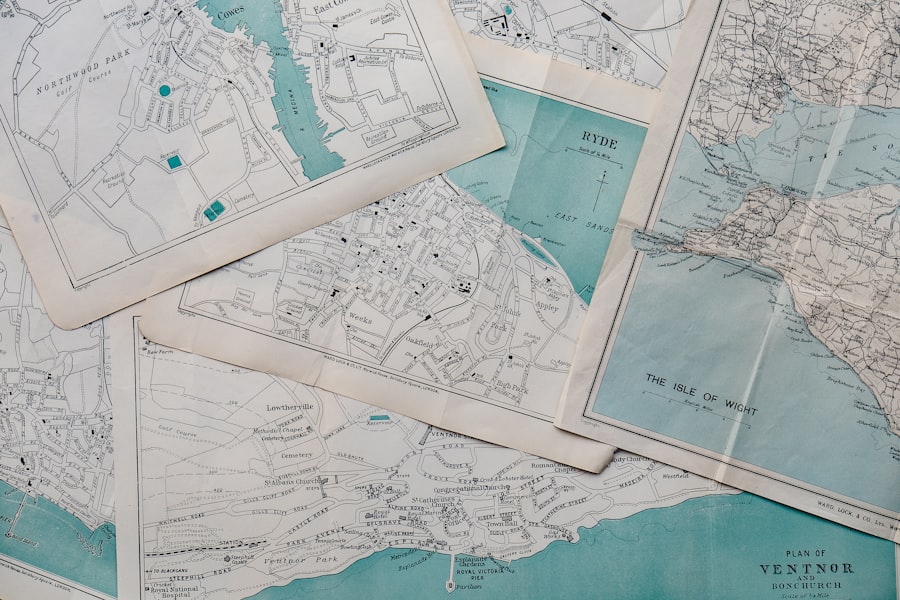The early colonization efforts of European powers were marked by a fervent desire to explore and exploit new territories. In the late 15th century, the Age of Discovery catalyzed a wave of exploration that saw nations like Spain and Portugal leading the charge. Christopher Columbus’s voyage in 1492, sponsored by Spain, is often heralded as a pivotal moment in this era.
Columbus’s landing in the Bahamas opened the floodgates for further exploration and colonization of the Americas. The Spanish crown quickly recognized the potential for wealth in the New World, leading to the establishment of settlements and the extraction of resources, particularly gold and silver. The Spanish conquests of the Aztec and Inca empires exemplified the brutal efficiency with which European powers sought to dominate indigenous populations and seize their riches.
The Treaty of Tordesillas in 1494, which divided the newly discovered lands between Spain and Portugal, set the stage for a competitive race for territory. Portuguese explorers like Vasco da Gama navigated around Africa to reach India, establishing trade routes that would become vital for European commerce.
The establishment of trading posts along the coasts of Africa and India allowed Portugal to control lucrative spice trade routes, further fueling European interest in colonization. These early efforts laid the groundwork for a global network of trade and colonization that would expand dramatically in the following centuries.
Key Takeaways
- Early colonization efforts were driven by European powers seeking to establish footholds in new territories for trade and resources.
- Expansion through conquest and settlement involved the displacement and subjugation of indigenous populations by European colonizers.
- Diplomatic alliances and treaties were used by European powers to solidify their control over colonial territories and to establish spheres of influence.
- Economic and trade expansion in colonial territories often led to the exploitation of natural resources and the establishment of trade monopolies by European powers.
- Imperialism and the scramble for Africa saw European powers competing for control over African territories, leading to the partitioning of the continent and the imposition of colonial rule.
- Decolonization and the end of territorial growth marked the eventual dismantling of colonial empires and the restoration of independence to many former colonies.
Expansion through Conquest and Settlement
As European powers solidified their presence in newly discovered territories, expansion through conquest became a hallmark of colonial strategy. The 16th and 17th centuries witnessed a series of military campaigns aimed at subjugating indigenous populations and claiming land for European nations. The Spanish conquistadors, driven by a combination of greed, religious zeal, and a sense of superiority, embarked on expeditions that resulted in the rapid conquest of vast territories in the Americas.
Figures like Hernán Cortés and Francisco Pizarro led campaigns that dismantled powerful empires such as the Aztecs and Incas, often employing brutal tactics that included warfare, enslavement, and disease. In North America, English settlers pursued a different approach, characterized by both conquest and settlement. The establishment of Jamestown in 1607 marked the beginning of permanent English colonization in Virginia.
The settlers faced numerous challenges, including conflicts with Native American tribes, harsh environmental conditions, and food shortages. However, the promise of land ownership and economic opportunity attracted more settlers over time. The expansion into territories such as New England and the southern colonies was often accompanied by violent confrontations with indigenous peoples, leading to significant loss of life and displacement.
This dual strategy of conquest and settlement not only expanded European territorial claims but also fundamentally altered the social and cultural landscapes of these regions.
Diplomatic Alliances and Treaties

While military conquest played a significant role in colonial expansion, diplomatic alliances and treaties were equally crucial in shaping colonial relationships. European powers often sought to secure their interests through negotiations with indigenous leaders or rival nations. In North America, for instance, the French engaged in alliances with various Native American tribes to bolster their fur trade operations.
The French and Indian War (1754-1763) exemplified how these alliances could shift power dynamics; Native American tribes allied with the French fought against British expansion, highlighting the complex interplay between diplomacy and military action. In other regions, treaties were instrumental in formalizing territorial claims and establishing boundaries. The Treaty of Paris in 1763 ended the Seven Years’ War and significantly altered the colonial landscape in North America.
Britain emerged as a dominant power, gaining control over Canada and Florida while ceding Louisiana to Spain. Such treaties not only reflected military outcomes but also underscored the importance of diplomatic negotiations in colonial governance. The intricate web of alliances and treaties forged during this period laid the foundation for future conflicts and territorial disputes as colonial powers vied for dominance.
Economic and Trade Expansion
The economic motivations behind colonization were profound, driving European powers to seek new markets, resources, and trade routes. The mercantilist policies prevalent during this era emphasized the accumulation of wealth through trade surpluses and resource extraction from colonies. The establishment of plantations in the Caribbean and southern colonies became a cornerstone of colonial economies, particularly with cash crops like sugar, tobacco, and cotton.
These plantations relied heavily on enslaved labor, leading to a brutal system that dehumanized countless individuals while enriching European powers. Trade networks expanded significantly during this period, connecting Europe with Africa, Asia, and the Americas. The transatlantic slave trade emerged as a grim but lucrative enterprise, facilitating the forced migration of millions of Africans to work on plantations in the Americas.
This trade not only fueled economic growth in Europe but also had devastating social consequences for African societies. Additionally, European powers sought to monopolize trade routes by establishing colonies along key maritime passages. The Dutch East India Company and British East India Company exemplified how private enterprises could drive colonial expansion while generating immense profits for their shareholders.
Imperialism and the Scramble for Africa
The late 19th century marked a significant turning point in colonial expansion with the onset of imperialism and the Scramble for Africa.
The Berlin Conference of 1884-1885 epitomized this frenzy as European leaders convened to divide Africa among themselves without regard for existing ethnic or cultural boundaries.
This arbitrary partitioning led to profound consequences for African societies, as traditional power structures were disrupted and colonial administrations imposed foreign governance. The motivations behind this imperialist drive were multifaceted. Industrialization had created an insatiable demand for raw materials such as rubber, minerals, and agricultural products.
European nations sought to secure these resources by establishing colonies that could supply their growing industries. Additionally, competition among European powers intensified as they sought to expand their empires to assert dominance on the global stage. The consequences of this scramble were dire; colonial rule often involved violent suppression of resistance movements, exploitation of local populations, and significant cultural disruption.
Decolonization and the End of Territorial Growth

The mid-20th century heralded a dramatic shift in global dynamics as decolonization movements gained momentum across Asia, Africa, and the Caribbean. Following World War II, many colonies began to demand independence from their colonial rulers, fueled by nationalist sentiments and a desire for self-determination. The process was often fraught with conflict; countries like Algeria experienced protracted struggles against French colonial rule, while India’s path to independence involved both nonviolent resistance led by figures like Mahatma Gandhi and violent uprisings.
The end of territorial growth marked a significant transformation in international relations as former colonies emerged as independent nations. The United Nations played a crucial role in supporting decolonization efforts by advocating for self-determination and human rights. As new nations emerged on the global stage, they sought to redefine their identities while grappling with the legacies of colonialism.
The post-colonial period was characterized by challenges such as economic dependency on former colonial powers, internal conflicts arising from ethnic divisions exacerbated by colonial rule, and efforts to establish stable governance structures. The decolonization process fundamentally altered global power dynamics as former colonies sought to assert their sovereignty while navigating a world increasingly defined by Cold War tensions. The legacy of colonialism continues to shape contemporary international relations, influencing discussions around reparations, cultural heritage, and global inequality.
As nations reflect on their colonial pasts, they grapple with complex questions about identity, justice, and reconciliation in an interconnected world that bears the scars of centuries of imperialism.
In a related article discussing formal proof of validity, proving invalidity, and conditional proofs, the importance of logical reasoning and evidence-based arguments is highlighted. This article delves into the intricacies of constructing sound arguments and providing evidence to support claims, much like the strategic decision-making process involved in British territorial growth. To learn more about the role of logical reasoning in various contexts, check out this article.
FAQs
What were the main strategies of British territorial growth?
The main strategies of British territorial growth included colonization, conquest, diplomacy, and trade. These strategies were employed to expand British influence and control over territories around the world.
How did colonization contribute to British territorial growth?
Colonization involved the establishment of British settlements in various parts of the world, leading to the acquisition of new territories. This allowed the British to expand their territorial holdings and exert control over indigenous populations.
What role did conquest play in British territorial growth?
Conquest involved the use of military force to acquire new territories. The British engaged in numerous military campaigns to conquer and annex territories, particularly in Africa, Asia, and the Americas.
How did diplomacy contribute to British territorial growth?
Diplomacy played a crucial role in British territorial growth by enabling the negotiation of treaties and agreements with other countries and indigenous groups. These diplomatic efforts often resulted in the acquisition of new territories or the expansion of British influence.
What was the significance of trade in British territorial growth?
Trade was a key driver of British territorial growth, as it facilitated the establishment of commercial and economic relationships with other countries and regions. Through trade, the British were able to gain access to new territories and resources, leading to territorial expansion.
What were the long-term effects of British territorial growth?
The long-term effects of British territorial growth included the establishment of a vast global empire, the spread of British culture and influence, and the shaping of geopolitical dynamics in various regions. The legacy of British territorial expansion continues to impact the world today.
























+ There are no comments
Add yours